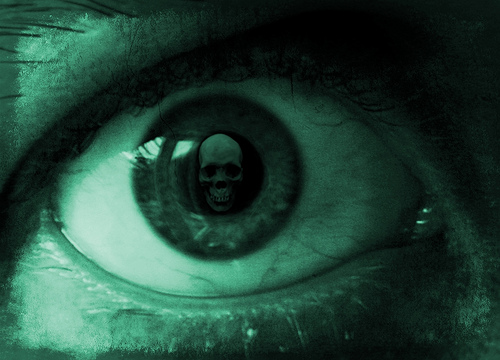 |
| Courtesy of Doug Wheller via Flickr Commons |
Look, I get it. I lost my mother to cancer in 2009, two days before her 56th birthday. I have lived the rollercoaster of pain and grief and desperation that cancer causes, and I would have given anything for a miraculous Australian plant to implode her tumours in one tasty and side-effect free treatment. So would she, believe me.
I'm not an oncologist or a cancer researcher, but I am a geneticist. And since cancer is a genetic disease, it got covered at length during my schooling. Which means you can trust me when I say that Big Pharma is not suppressing the cure for cancer. Even leaving aside the logistics of maintaining a conspiracy on that scale, it's just not possible, because there is no single cure for cancer, and there never will be.
Because cancer is complicated.
We call it cancer as though it's a single condition, like Type I diabetes or ALS, but "cancer" is actually an umbrella term for dozens of further categories of disease. They all have one thing in common - the mechanisms that control normal cell division in our bodies (the kind that seals that nasty paper cut) break down. Without those controls in place, the cells just keep on dividing, forming tumours and rampaging through the body. But here's the thing. Although the end result - out of control cell division - is the hallmark of cancer, the pathway by which cells lose control is always different. Always.
That's because the systems that control cell division are encoded in our genes. And the mutations that destroy those systems are accidents. They are random. Mutations can happen in any gene at any time. Acquisition of a collection of mutations that cause the failsafes to break down is completely coincidental.
Which means that every single cancer patient's cancer is unique. And that's why it's so difficult to treat. Cancer doctors and researchers have no choice but to play the odds - to attack the things that different cancers often have in common. But they can't account for the endless variation, no matter how hard they try. And they can't prevent cancer cells from continuing to mutate, becoming resistant to treatment - just like bacteria become resistant to antibiotics.
And that's why there will never be a magic bullet cure for cancer. It's not because cancer researchers aren't motivated - many of them choose to study cancer because they've lost loved ones of their own. And it's certainly not because there's too much money is keeping people sick (which is patently ridiculous - every economist will tell you that sick people cost money). "THE CURE" will never be found because cancer is a moving target, and worse, it's a target that's embedded so deeply within us, it can never be fully eradicated.
So stop with the memes, please. Just stop. And if you want to know more about what cancer medicine is really up against, do yourself a favour - read Siddhartha Mukherjee's The Emperor of All Maladies. It will make you grateful that cancer medicine has come as far as it has.
1 comment:
It's also worth pointing out that there are already treatments and even cures for some kinds of cancer. Many people are getting good treatment after a diagnosis of cancer and have good, long lives afterwards. Many people even have a complete remission.
When taking my cousin to her cancer treatments, the biggest thing I learned was that the treatments were part of our national health care in Canada.
Post a Comment